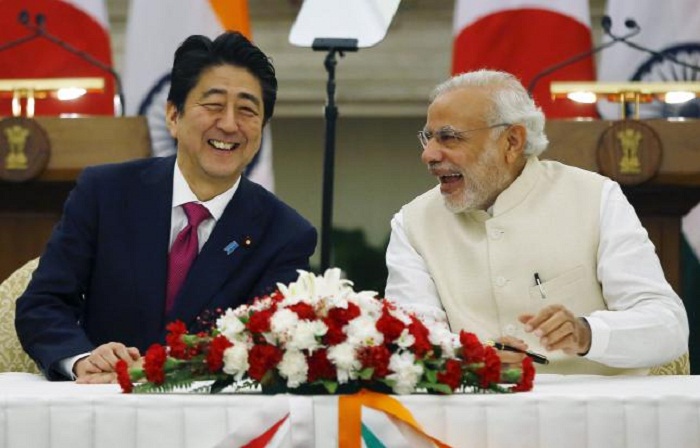The deal to build a high-speed train line between the financial hub of Mumbai and Ahmedabad gives Japan an early lead over China, which is conducting feasibility studies for high speed trains on other parts of the Indian rail network.
"This enterprise will launch a revolution in Indian railways and speed up India`s journey into the future. It will become an engine of economic transformation in India," Modi said in a speech.
Under the defence deals announced on Saturday, the two sides will share technology, equipment and military information, but the long-awaited sale of Japanese aircraft in a deal worth about $1.1 billion was not concluded.
Similarly, while they agreed to work towards cooperation in civil-nuclear technology, they stopped short of signing an agreement, citing outstanding technical differences.
Japan, the only country to have suffered a nuclear attack, has been demanding additional non-proliferation guarantees from India before it exports nuclear reactors.
India and Japan have been negotiating a nuclear energy deal since Japan`s ally, the United States, opened the way for nuclear commerce with India despite its weapons programme.
"The memorandum we signed on civil nuclear energy cooperation is more than just an agreement for commerce and clean energy, it is a shining symbol of a new level of mutual confidence and strategic partnership in the cause of peaceful and secure world," Modi said.
"I know the significance of this decision for Japan and I assure you that India deeply respects that decision and will honour our shared commitment," Modi added.
India and Japan have been holding talks for two years on the purchase by India of US-2 amphibious aircraft made by ShinMaywa Industries, which would be one of Japan`s first arms sales since Abe lifted a 50-year ban on weapon exports.
More about:
















































